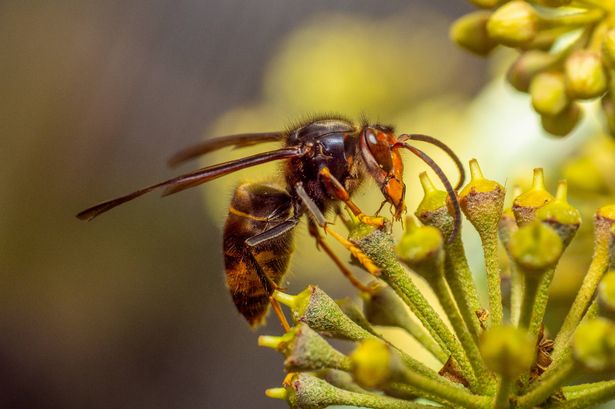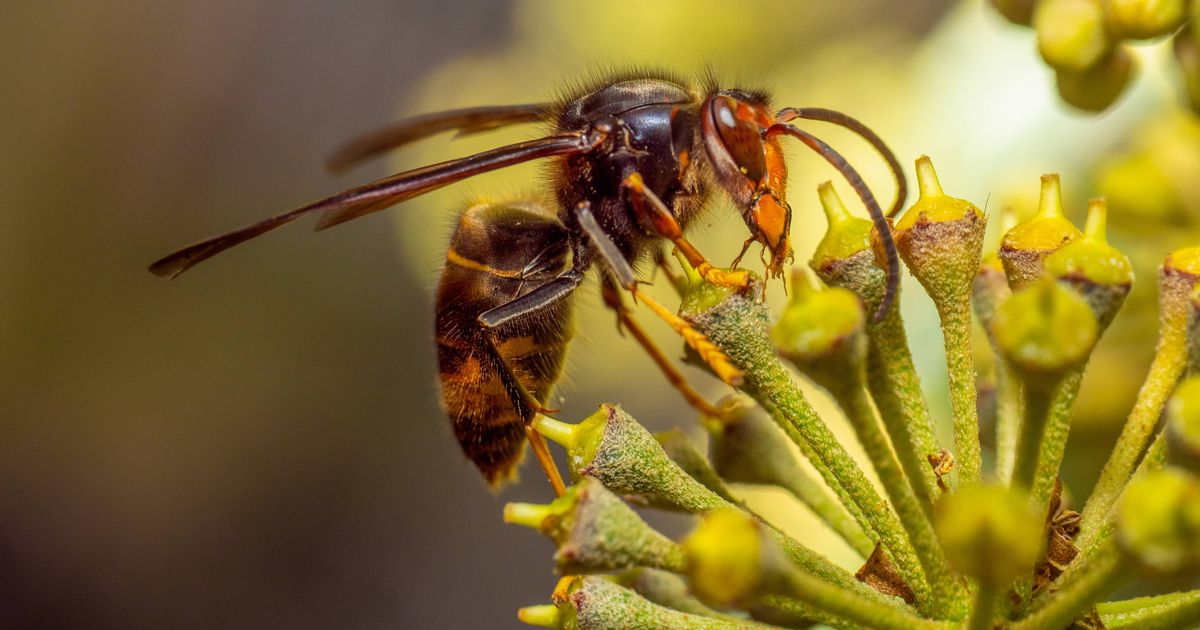Asian hornets have been spotted in the UK and could be a ‘devastating’ predator
Alex Evans Deputy Audience Editor
21:37, 12 Aug 2025
 Asian hornets are a ‘devastating’ predator(Image: Aime Martin via Getty Images)
Asian hornets are a ‘devastating’ predator(Image: Aime Martin via Getty Images)
Wildlife experts have issued a warning about a ‘highly aggressive’ invasive predator that is infiltrating UK gardens, posing a threat to bees, insects and even garden birds.
Asian Hornets, unlike their European counterparts, are voracious killers not native to the UK. These predators hunt and kill native British wildlife, potentially causing a ‘devastating’ ripple effect on our ecosystem and food chain.
Lucy Taylor from Vine House Farm Bird Foods has urged UK households to report any sightings of an Asian Hornet, highlighting the differences compared to a standard European Hornet. This non-native species of predatory insect arrived in Europe via a shipment of goods into France in 2004, and since then has spread to various European countries, including the UK.
Also known as the Yellow-legged Hornet, this species poses threats to some of our native wildlife, including garden birds, reports the Express. Lucy Taylor of Vine House Farm Bird Foods cautioned: “As is normally the case with non-native species of animal, Asian Hornets are having a negative impact on our wildlife.
“You could easily think that it would take larger non-native animals, such as birds and mammals, to negatively impact our wildlife, but actually, an insect like the Asian Hornet can do huge damage because of where they sit in the food chain.
“As a predatory species, it is other insects which Asian Hornets kill and eat, and notably bees. As bees and other pollinator insects were already in decline ahead of the Asian Hornet’s arrival, this is clearly a worry because bees are so central to a functioning ecosystem, not to mention the production of much of the fruit and veg we eat.
“One of the key reasons cited for the decline in populations in some songbird species is the corresponding decline in their natural food supply, and notably, flying insects. This reduction in insect numbers has rightly been blamed on factors such as intensive farming, loss of habitat and climate change, so the last thing we need is further pressure from the predatory Asian Hornet.”
She added: “If you see an Asian Hornet in your garden or elsewhere, then it’s important to report it so action can potentially be taken by the appointed authority. This can be done using several ways and including a smart phone app, with all the details here.
“In the event you discover what you believe to be an active Asian Hornet’s nest, then don’t disturb it but instead just report it as above. If you’re unsure whether or not what you’re looking at really is an Asian Hornet, then still report it but include your own photo when you do so.”
Our ChronicleLive Daily newsletter is free. You can sign up to receive it here. It will keep you up to date with all the latest breaking news and top stories from the North East.
ChronicleLive has created a dedicated WhatsApp community for What’s On news and updates. You can join this WhatsApp community here. It will keep you up to date with things to do around the North East and breaking gig announcements, sent directly to your phone.
